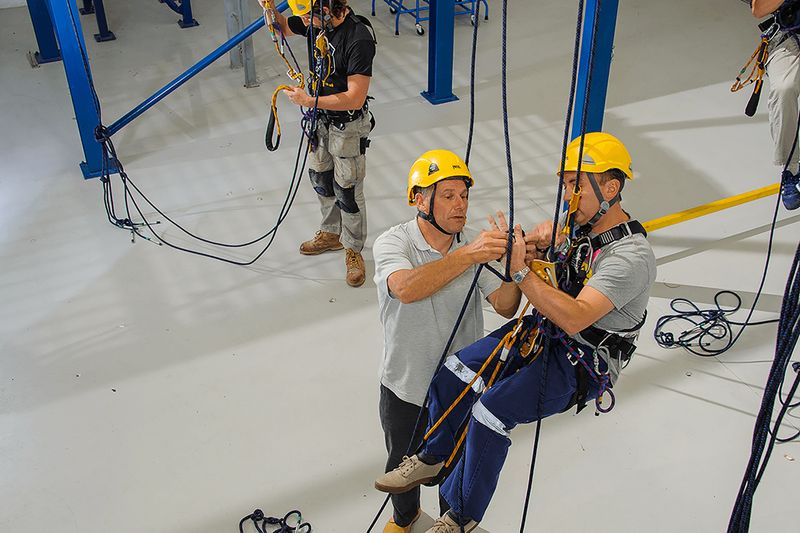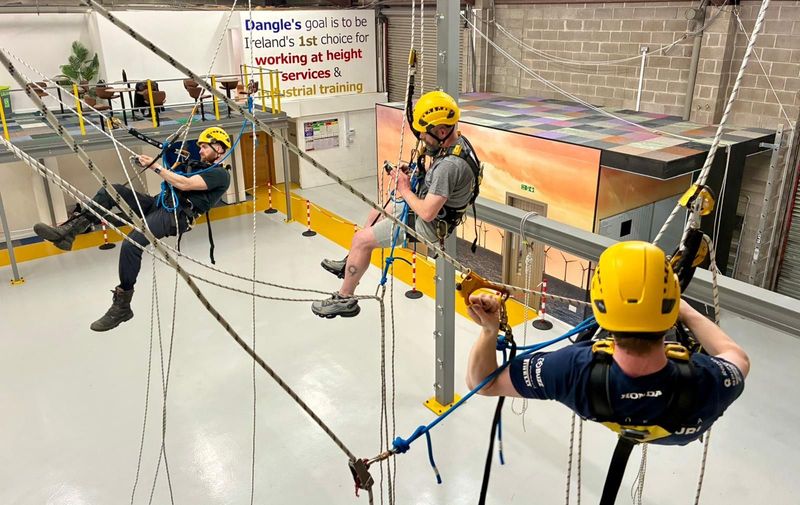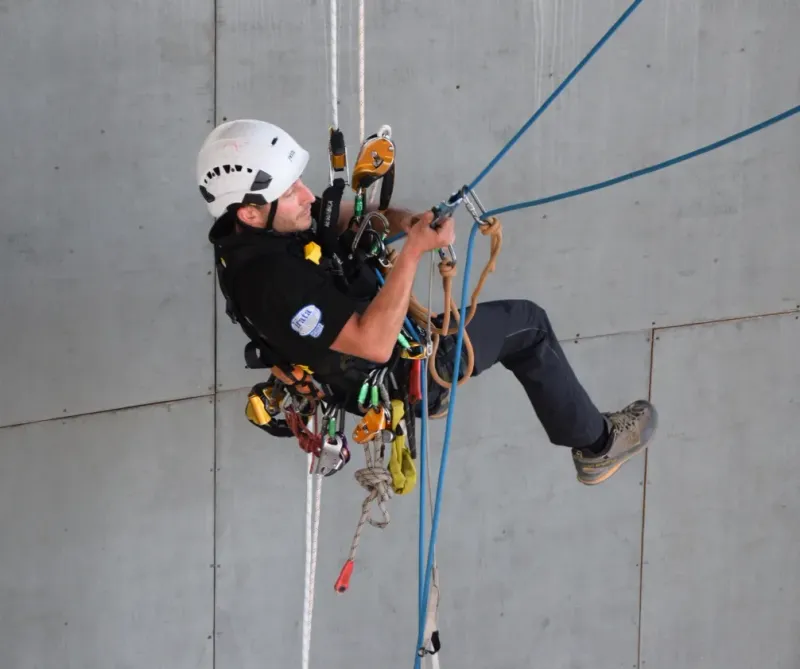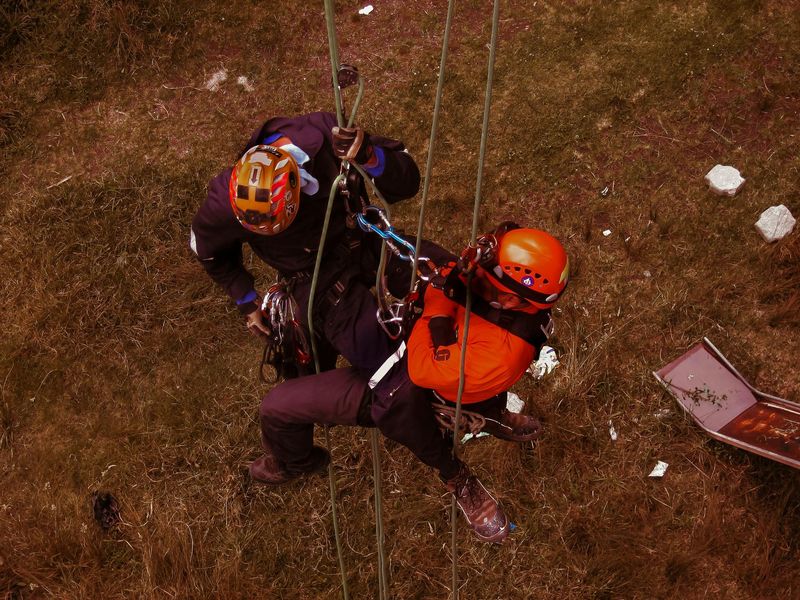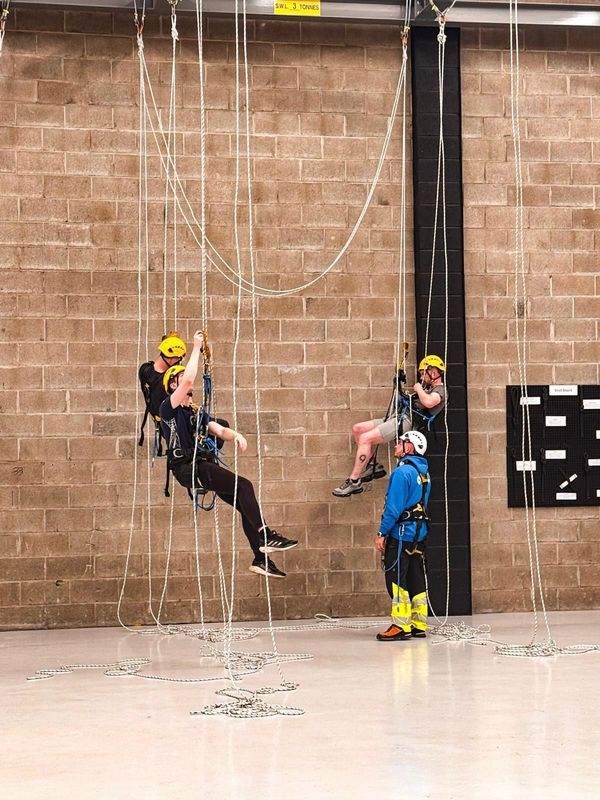Industrial Training Courses | Belfast - Northern Ireland
Rope Access Courses
Rope Access Courses
At Dangle Academy in Belfast, we deliver industry-accredited Industrial Rope Access Trade Association (IRATA) Rope Access Courses designed for those working at height across construction, maintenance, energy, marine, and industrial environments.
As Belfast's only IRATA-approved training centre, we provide internationally recognised industrial rope access training that prepare you for safe, professional work at height. Whether you’re completely new and starting out, or progressing through IRATA Levels 1, 2, and 3, our IRATA rope access training gives you the skills, confidence, and certification required to work globally in rope access.
Our rope access courses focus on essential techniques, equipment use, safety practices, and rescue procedures, ensuring you’re fully prepared for real-world industrial rope access environments.
Rope access training is delivered by our experienced IRATA instructors with extensive real-world knowledge of working at height across industries such as construction, energy, marine, and infrastructure. Our expertise ensures you receive practical, hands-on instruction in rope access techniques, safety, and rescue procedures—making Dangle Academy the leading choice for rope access training in Northern Ireland.
Rope Access Training
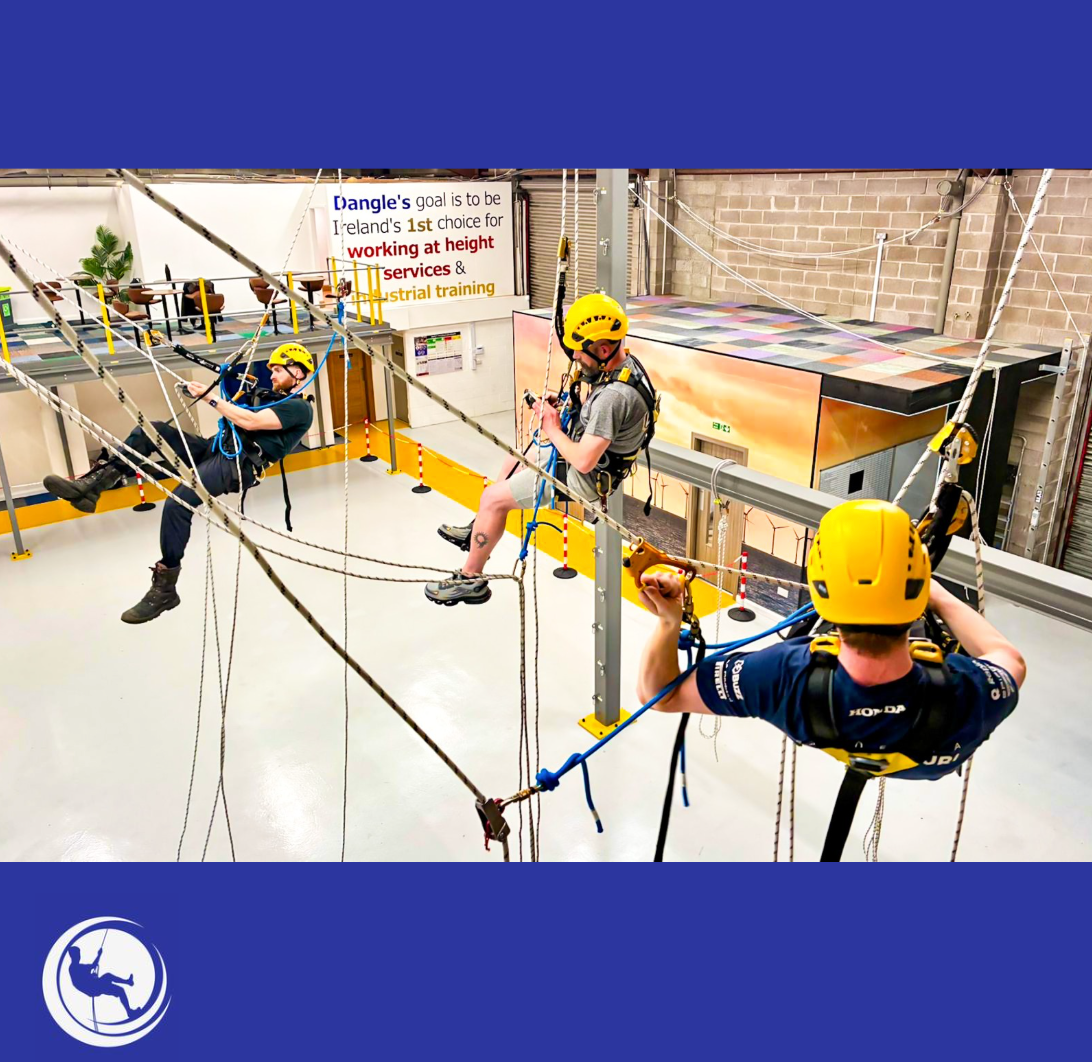
Rope access is one of the safest and most efficient ways to work at height in construction, maintenance, energy, and industrial environments. Unlike traditional access methods such as scaffolding or powered platforms, rope access minimises disruption, reduces costs, and prioritises safety. Proper training ensures technicians are competent, compliant, and fully prepared for challenging environments.
Our rope access courses ensure your team:
- Works to the highest IRATA international standards
- Understands essential rope manoeuvres, rigging, and safety procedures
- Can perform rescues and emergency procedures effectively
- Follows strict industry health and safety regulations
- Meets client and employer expectations in demanding environments
Rope Access Courses Near Me
Rope Access Taster Course
A one-day introduction for newcomers curious about rope access. Covers essential techniques, safety awareness, and basic manoeuvres — perfect for those considering a career in rope access before committing to full IRATA training.
IRATA Level 1 Rope Access Technician
The entry-level IRATA qualification. Teaches safe rope access techniques, basic rigging, equipment checks, and rescue procedures, enabling you to work as part of a rope access team under supervision.
IRATA Level 2 Rope Access Technician
For experienced Level 1 technicians. Focuses on advanced rigging, complex manoeuvres, rescues, and the skills needed to take on more responsibility within rope access operations.
IRATA Level 3 Rope Access Supervisor
The highest level of IRATA certification. Covers team leadership, advanced rigging and rescue management, safety compliance, and supervisory responsibilities. Prepares you to oversee rope access projects worldwide.
IRATA Logbook Refresher
For qualified technicians returning to rope access after a break, or those needing to update and validate their logbook. This refresher ensures your skills, safety knowledge, and practical ability remain current and IRATA-compliant.
IRATA Course
- What to Expect During Your Training
Content topics
- Step-by-step overview of what’s covered in our 5-day IRATA course.
- Learn about classroom theory, hands-on training, and practical assessments.
- Find out what personal protective equipment (PPE) and gear are required.
- Starting a career in rope access and working at height.
- Existing rope access technicians progressing through IRATA Levels 1, 2, and 3.
- Construction, maintenance, and industrial workers who require rope access skills.
- Engineers, supervisors, and team leaders seeking IRATA certification.
- Apprentices or professionals transitioning into specialist work-at-height roles.
IRATA Rope Access Training in Belfast
- At Dangle Academy, Belfast – Fully equipped training centre
- Bespoke training packages – Tailored to your industry and work environment are also available
IRATA Qualification - Advance Your Career in Rope Access
Content topics:
Explore the benefits of obtaining IRATA Level 1, Level 2, and Level 3 qualifications.
- Learn how each qualification expands your work scope and responsibilities.
- Get advice on the best time to upgrade your qualification for career growth.
All courses include practical assessments and theoretical learning. On successful completion, delegates receive an IRATA certificate and logbook, valid for three years and recognised worldwide.
Our courses follow best practice and meet international safety standards, ensuring technicians are fully compliant and job-ready for industrial rope access work.
IRATA Certification - Your Passport to Professional Rope Access Work
Content topics:
- Find out what assessments are required to gain IRATA certification.
- Learn how certification helps you qualify for industrial rope access jobs.
- Understand renewal requirements and how to keep your IRATA card valid.
- IRATA-accredited training delivered by experienced rope access instructors.
- Focus on safety, compliance, and industry best practice.
- Small group sizes and intensive, hands-on practical training.
- Training delivered in our purpose-built rope access facility in Belfast.
IRATA Training - Build Skills That Meet Global Safety Standards
Content topics
- Learn the fundamentals of rope access techniques and safe working practices.
- Understand IRATA’s three-level training system and how progression works.
- Discover why IRATA training is recognised by employers worldwide.
IRATA Rope Access Course - Where to Train and How to Enrol
Content topics:
- How to find an accredited IRATA training centre near you.
- What to look for in a training provider to ensure compliance and safety.
- How to book your rope access course and prepare for your first training day.
- Ready to take your rope access skills to the next level.
Book online now, or get in touch to discuss group training, customised courses, or availability.
We look forward to welcoming you to Dangle Academy — where we train you to Reach the Unreachable.
